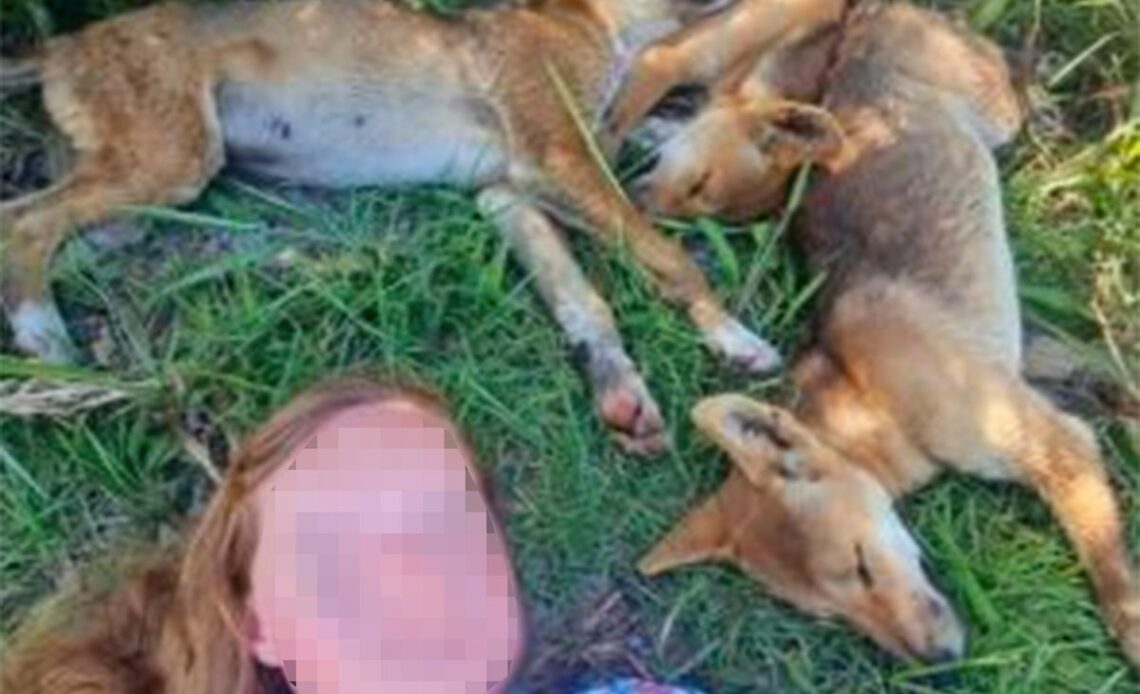Two women have been fined £1,200 each for taking selfies with dingoes on a popular tourist island off the coast of Queensland, Australia.
Authorities said they “make no apology” for the heavy penalties, which they hope will prevent others from interacting with the animals on K’gari, also known as Fraser Island.
The two Australian women were caught after tip-offs from members of the public, with one video showing the creatures behaving in an agitated and aggressive manner.
It follows an incident in which a woman was air-lifted to hospital after being mauled by dingoes on the island, leading to one of the native animals – sometimes known by their indigenous name, wongari – being put to sleep.
“Both women have made an extremely dangerous decision to interact with wongari and that’s why they have been fined,” said Mike Devery, compliance manager for the Queensland Parks and Wildlife Service.
“The Queensland woman could have been bitten by the wongari, which was clearly exhibiting dominance-testing behaviour. It is not playful behaviour. Wongari are wild animals and need to be treated as such, and the woman is lucky the situation did not escalate.
“The New South Wales woman has recklessly chosen to approach very closely to three sleeping wongari pups, and she was lucky the mother of the pups wasn’t nearby.
“Wongari are known for defending their packs and their pups, and it is unbelievable that people would endanger their wellbeing like this.”
On 17 July, rangers and the Queensland Ambulance Service responded after a 23-year-old woman was left with serious injuries to her limbs after being attacked by a pack of dingoes, who also injured the hand of a man who rescued her.
One of the dingoes involved in the incident has been captured and “humanely euthanised”, said Queensland’s Department of Environment and Science.
The animal, which was around two years old, weighed around 17kg, which officials said was heavy for a dingo and “a clear indication it had been fed”.
“It was also clear from its behaviour that it had become habituated, either by being fed or from people interacting with it for videos and selfies. The animal had lost its natural wariness of people, and entering campsites or loitering around people is not normal dingo behaviour,” a spokesperson for Queensland Parks and Wildlife Service said.
Rangers…
Click Here to Read the Full Original Article at The Independent Travel…
